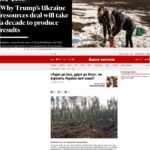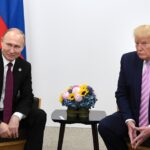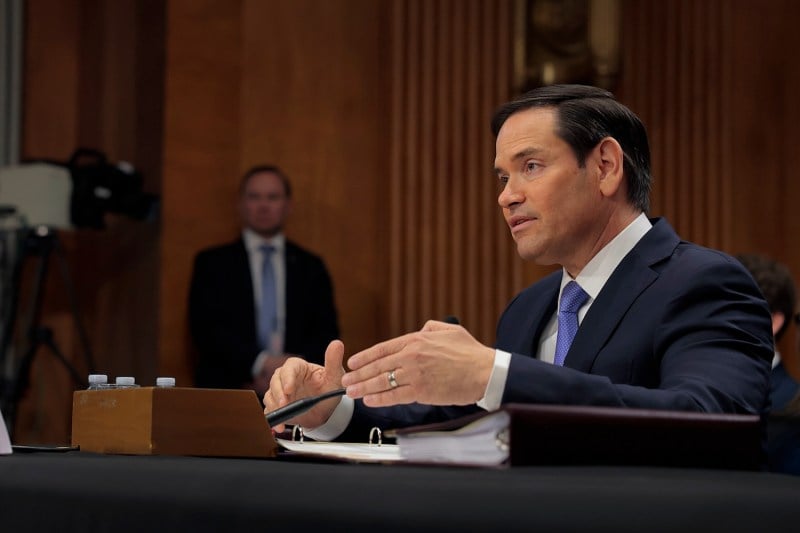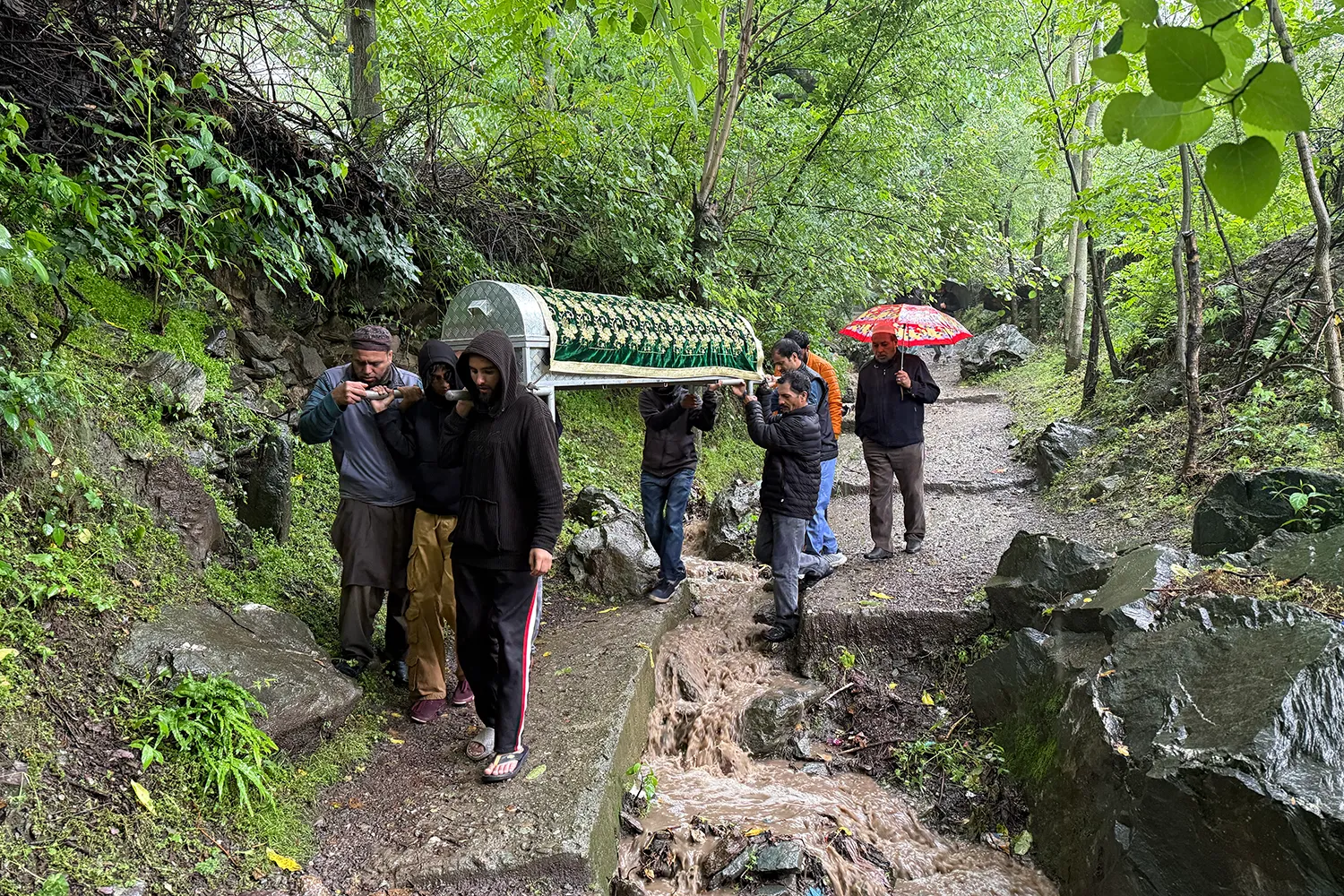China Tries to Revive Economy Amid Tariff Pause

China Tries to Revive Economy Amid Tariff Pause
Officials hope to boost domestic spending, but prospects are slim.
Employees work at a factory that produces car parts for export in Lianyungang, in eastern China’s Jiangsu province, on May 20. AFP/China OUT via Getty Images
Welcome to Foreign Policy’s China Brief.
The highlights this week: China tries to strengthen its economy amid a tariff pause with the United States, the Chinese Communist Party announces a belt-tightening campaign, and Huawei debuts its first laptop computers.
Welcome to Foreign Policy’s China Brief.
The highlights this week: China tries to strengthen its economy amid a tariff pause with the United States, the Chinese Communist Party announces a belt-tightening campaign, and Huawei debuts its first laptop computers.
Chinese Leadership Makes Economic Push
Just over a week after U.S. and Chinese officials agreed to a temporary pause on skyrocketing tariffs, effective rates remain at record highs.
According to the Peterson Institute for International Economics, average U.S. tariffs on Chinese exports stand at 51.1 percent, while average Chinese tariffs on U.S. exports stand at 32.6 percent. These figures are considerably higher than those in most headlines—30 percent and 10 percent, respectively.
And though Chinese factories are taking advantage of the rate reduction from 145 percent and spinning up production lines for U.S. customers again, the chilly trade climate is still hampering the Chinese economy. April’s economic figures, released Monday, indicate that consumer spending and sentiment, among other metrics, remain weak.
A marked divide in responses is emerging between the Chinese government, which is eager to make the economy more self-sufficient, and factories that can’t survive without global markets. China’s political leadership has long aimed to boost domestic consumption, but it is hindered by the public’s inclination toward saving rather than spending.
Chinese President Xi Jinping’s signature dual circulation strategy, introduced in 2020, intended to reduce the role of foreign trade while encouraging domestic spending. Instead, it ran into the wall of the COVID-19 pandemic, when the financial stress of lockdowns made saving even more important.
With the trade war still on—albeit at a lower intensity—on Tuesday China’s central bank responded by cutting benchmark lending rates by 10 basis points to encourage domestic investment. Meanwhile, Chinese Premier Li Qiang attended and promoted a big meeting among officials last week to encourage “domestic circulation.”
Li has made outreach to business central to his role, but the community shows little optimism for a domestic push for consumption.
The exception is the technology sector: The success of the Chinese company DeepSeek’s large language model, DeepSeek-R1, along with government encouragement, is spurring an artificial intelligence (AI) rush. Clean energy, which has caused a drop in China’s carbon emissions for the first time, also continues to grow rapidly.
But factories can’t simply shove AI into microwaves or children’s toys, and they also can’t find new domestic markets amid a deflationary spiral and with a bruised public that is worried about trade tensions with the United States.
That means turning to other, often fraudulent, ways of increasing sales. The chief method, however, is to find a way around U.S. tariffs. That was the case during U.S. President Donald Trump’s first term, when Mexico and Vietnam became popular destinations for Chinese transshipment.
The United States has pressured Vietnam to stop this practice, but transshipments to the country nevertheless reached a post-pandemic high last month. Plus, many Chinese firms are outright moving manufacturing to Vietnam, bypassing the need for transshipment altogether.
But manufacturing can also be a cover. In Vietnam, local factories, especially those run by Chinese firms, often import and relabel Chinese-made goods. They are aided by highly developed smuggling and organized crime networks along China’s borders with Southeast Asian countries, often with the collusion of Chinese military officers.
What We’re Following
Belt-tightening campaign. China’s dour economic outlook has prompted new calls for government frugality from the top echelons of the Chinese Communist Party (CCP). Alcohol, cigarettes, gourmet food, and fancy flowers are out; thrift, recycling, and austerity are in.
There is a real need for local governments to cut back on spending, since they face a far-reaching budget crisis spurred by the pandemic and the collapse of the real estate bubble. That has forced them to raise money by any means possible. But frugality is unlikely to be an effective solution. Xi has repeatedly tried such campaigns, and they never seem to have permanent effects.
But austerity campaigns are also often public relations campaigns. Public anger about corruption was one of the factors that elevated Xi as an unusually powerful leader, since he promised the CCP that he would both control graft and crack down on media exposing corruption.
The latest austerity campaign is especially timely given the recent “4+4” scandal, which highlighted the pervasive nepotism within the CCP, which is known to be dominated by powerful families. (Xi is the son of a former top leader, and his first wife was the daughter of a high-ranking diplomat.)
COVID-19 wave hits children. A wave of COVID-19 infections in Hong Kong has had unusually serious effects on children, with pediatric wards full and several young patients critically ill. Thankfully, the disease is usually mild in children, though it can have lasting effects. Doctors note that most of the Hong Kong patients are unvaccinated.
Given Hong Kong’s status as a travel hub, if a new variant has emerged, it could have a global impact, especially given the Trump administration’s reversal of previous childhood vaccination policy.
FP’s Most Read This Week
- Why Khamenei Is Betting on Trump by Alex Vatanka
- Elon Musk Was Donald Trump’s Useful Idiot by Gideon Lichfield
- Russia Has Started Losing the War in Ukraine by Michael Kimmage
Tech and Business
HarmonyOS. On Monday, Huawei launched its first laptop computers, which run the Chinese operating system HarmonyOS, intended as an alternative to Microsoft Windows and Apple’s macOS. HarmonyOS was initially compatible with Android—and often accused of copying it— but is now its own ecosystem, though it is relatively underdeveloped.
Huawei boasts having more than 1,000 available apps, but that pales in comparison to the roughly 1.8 million apps on Apple’s App Store.
Nevertheless, the Chinese government has a strong interest in a purely domestic operating system due to fears that foreign models create security vulnerabilities that U.S. intelligence actors could exploit. Recent bans on foreign chips in government computers also emphasize security concerns, but previous attempts to ban Windows for official use have often failed in practice.
Global tax push. China and the United States are the only two countries that attempt to tax their nationals living abroad. But though the United States’ key role in global banking allows it to keep closer track of its citizens’ finances, China has generally struggled to do so.
A government effort formally announced in March is now using big data to trace foreign investments, which are also tax-liable. But China’s tight capital controls have already produced a large money laundering industry that rich citizens make plentiful use of, making it very difficult to trace their global investments.
James Palmer is a deputy editor at Foreign Policy. X: @BeijingPalmer
More from Foreign Policy
-

This handout picture provided by the office of Iranian Supreme Leader Ayatollah Ali Khamenei shows him praying inside the tomb of the late Supreme Leader Ayatollah Ruhollah Khomeini in Tehran on Jan. 30. Why Khamenei Is Betting on Trump
The calculus behind Iran’s stunning reversal on a new nuclear deal.
-

Musk wears a red had that reads “GULF OF AMERICA.” Elon Musk Was Donald Trump’s Useful Idiot
It’s looking increasingly likely that the world’s richest man got played.
-

With Jared Kushner to his left, Donald Trump listens to the rabbi Shmuel Rabinovitch during a visit to the Western Wall in Jerusalem’s Old City on May 22, 2017. Trump Isn’t Following the Script on Israel
In dealing with Netanyahu, the U.S. president appears to actually be living up to his campaign slogan to put America first.
-

Indian Air Force personnel stand in front of a Rafale fighter jet during a military aviation exhibition at the Yelahanka Air Force Station in Bengaluru. A Tale of Four Fighter Jets
The aircraft India and Pakistan use to strike each other tell a story of key geopolitical shifts.









Join the Conversation
Commenting on this and other recent articles is just one benefit of a Foreign Policy subscription.
Already a subscriber?
.
Subscribe
Subscribe
View Comments
Join the Conversation
Join the conversation on this and other recent Foreign Policy articles when you subscribe now.
Subscribe
Subscribe
Not your account?
View Comments
Join the Conversation
Please follow our comment guidelines, stay on topic, and be civil, courteous, and respectful of others’ beliefs.
Change your username |
Log out
Change your username:
CANCEL
Confirm your username to get started.
The default username below has been generated using the first name and last initial on your FP subscriber account. Usernames may be updated at any time and must not contain inappropriate or offensive language.